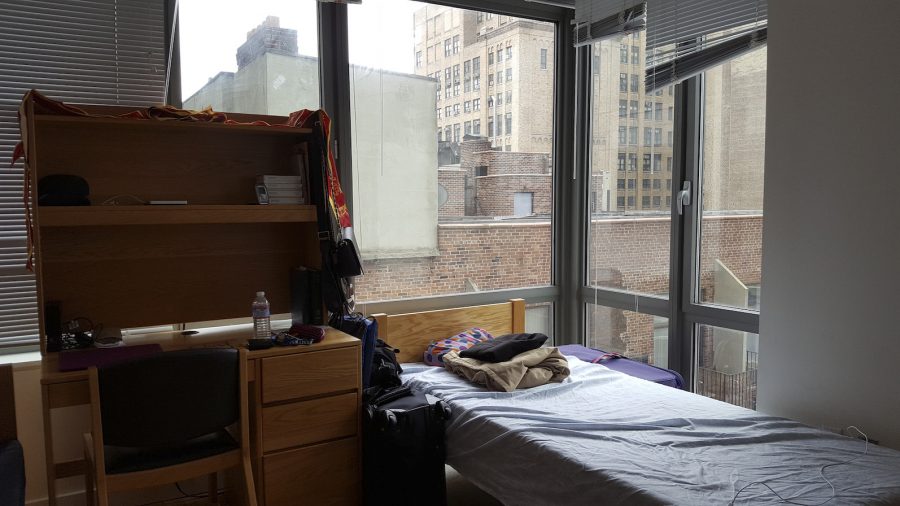A Senior Citizen As Your New Roommate
NYU commuters are moving into residence halls for the spring semester to save themselves time and stress.
October 17, 2016
With age comes wisdom, and the NYU housing process plans to bring some sagacity through its intergenerational housing pilot program in the 2017 fall semester. NYU announced affordability initiative in an Oct. 5 press release that detailed the new low-cost housing option as a part of the Affordability Steering Committee and Working Group’s October 2016 progress report.
Intergenerational housing allows students to dorm in a senior citizen home or retirement facility. The idea of a mutually beneficial relationship like this originated in Europe, and a university version gained traction internationally, from universities in the Netherlands to some in Chicago, Illinois.
According to the press release, NYU and its partner for this project, University Settlement, hope to match juniors, seniors and graduate students with elderly residents who have empty, rentable bedrooms for students. It is projected that the average housing cost of $13,000 per year could be cut in half.
Ellen Lovitz, the Senior Advisor to the President for Policy Analysis, explained via email that the pilot will initially consist of about 10 students.
“During the first year we will assess how the program is working, and make any necessary adjustments, with the expectation that we will be able to scale up to larger numbers by the fall of 2018,” Lovitz said. “Our planning process will include consultation with students and with residents of the housing complex identified by University Settlement.”
She said that this idea was partially influenced by the program in the Netherlands, but the concept also arose in the spring “How Might We” sessions, during which the NYU community was invited to brainstorm with the Affordability Steering Committee about ways to lower costs.
Because the program is still in the planning stage, details about the application and matching process have yet to be determined. Yet some students, such as CAS freshman Jake Barber, already have mixed feelings about the new program.
“I think as a cost affordable option it’s great for students who need low income housing and need an alternative to staying in a traditional residence hall,” Barber said. “Although, I think it would be a bit of a nuisance because that student would not get the full [residence] hall experience at NYU.”
While Lovitz said that service will probably not be required for students in intergenerational housing — unlike its Dutch counterparts, which require 30 hours of service or work per month — certain academic programs will let them help and socialize with
their neighbors.
Other students, such as Gallatin junior Maddie Perlmutter, believe that there is still more to be done to aid students struggling with housing costs.
“Housing is and has been an issue for NYU students, and I believe that this could possibly remedy it for some people but, I don’t think that it will make a very large impact,” Perlmutter said. “The committee must continue seeking widespread alternatives to lower costs in the residence halls, the option most used by the NYU student population.”
A version of this article appeared in the Monday, Oct. 17 print edition. Email Sierra Jackson at [email protected]



























































































































































